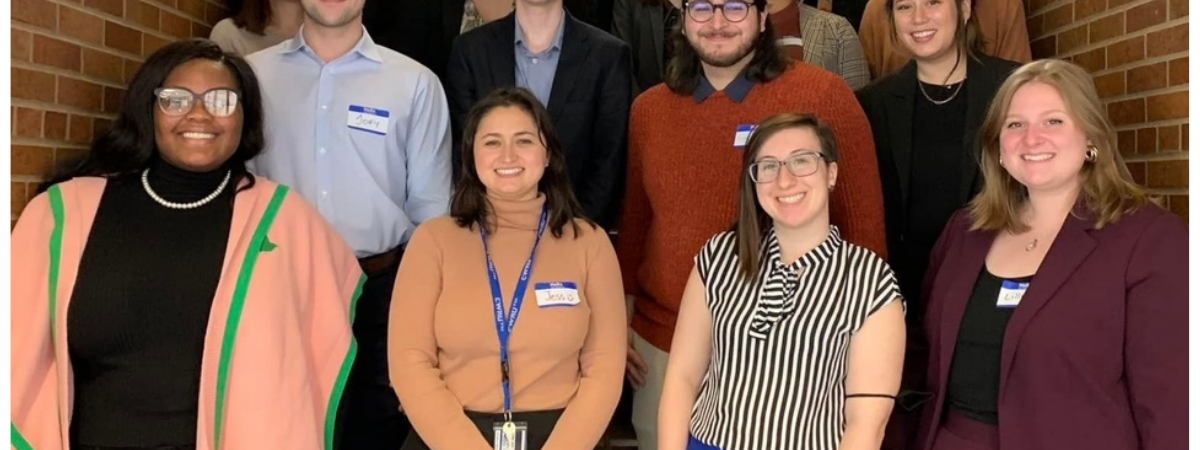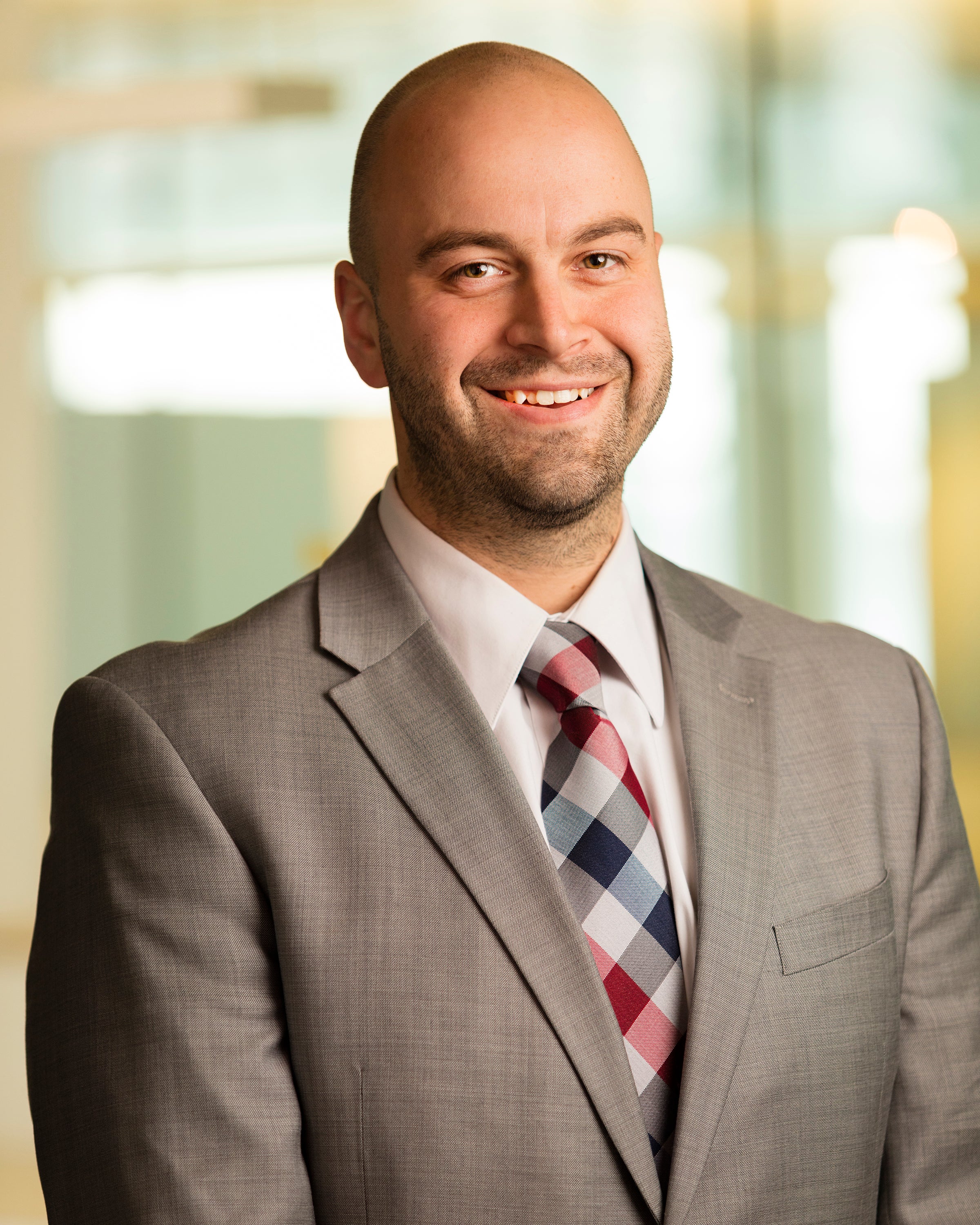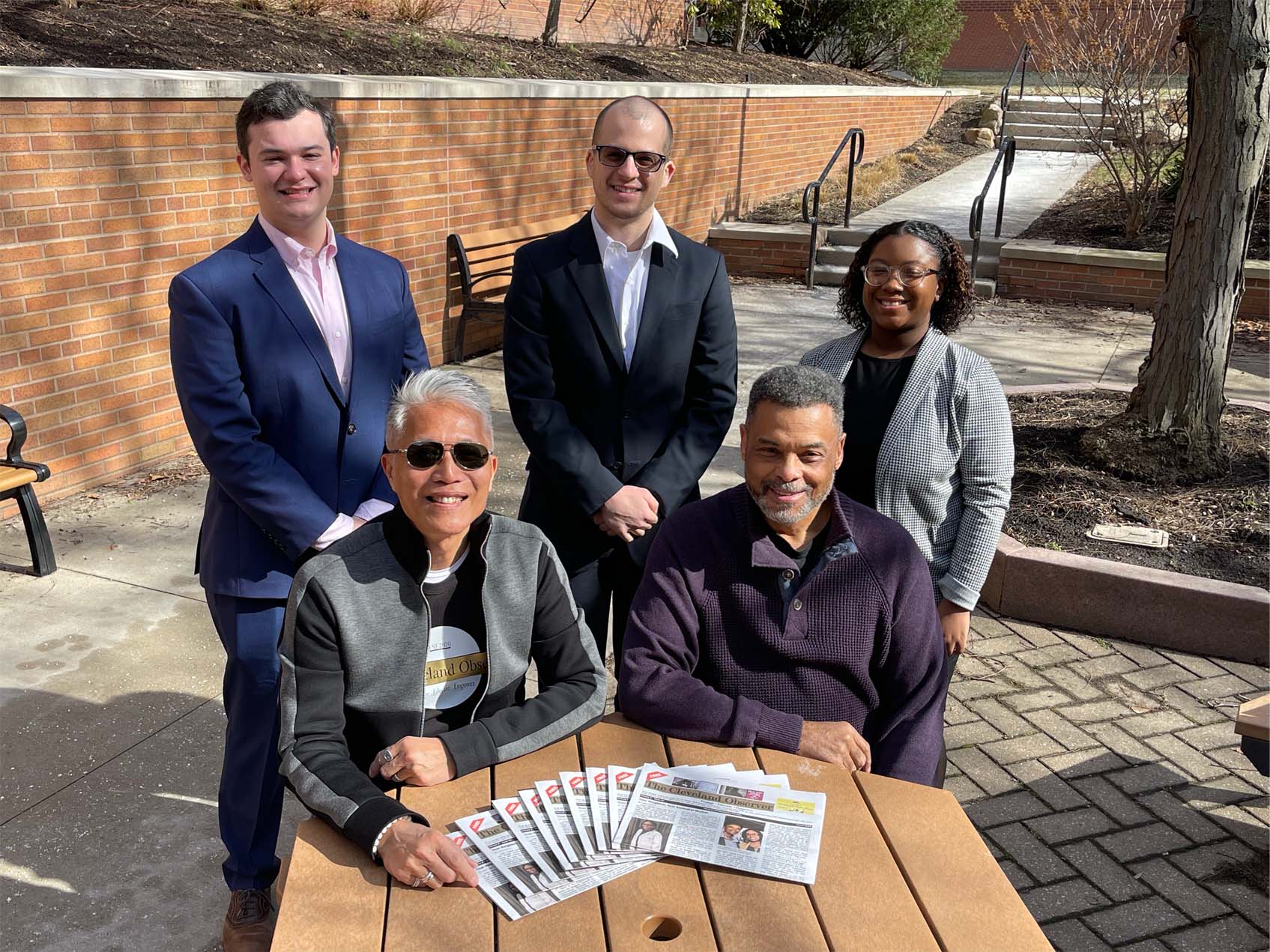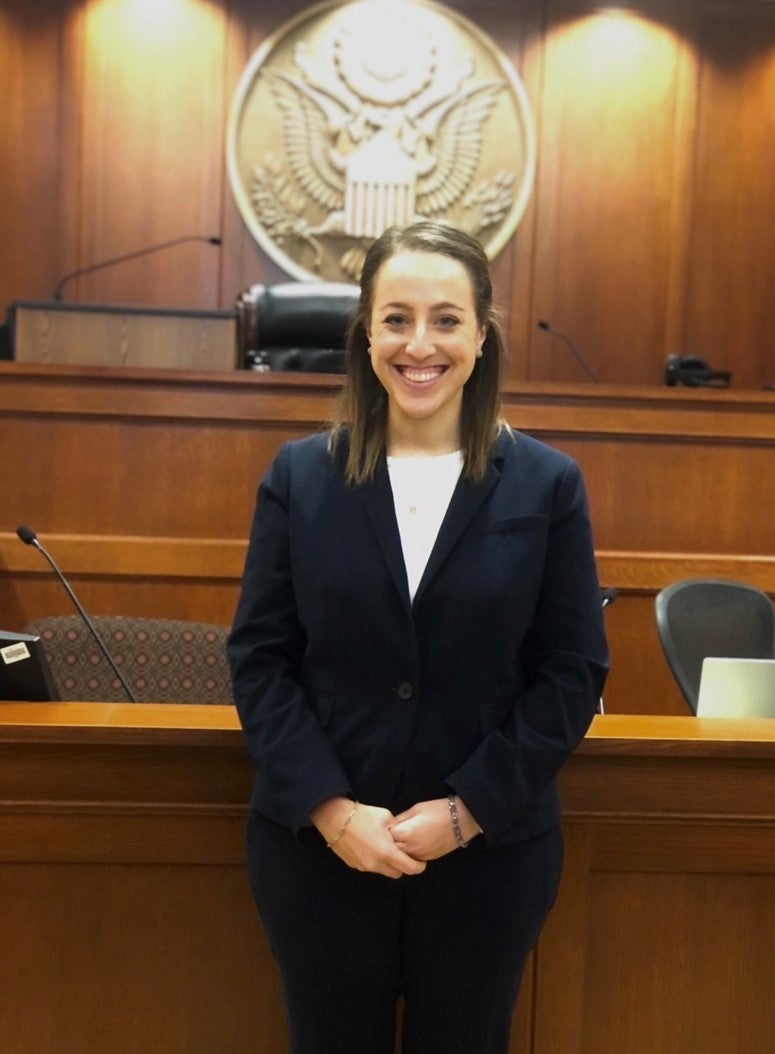Through the Kramer Law Clinic, students gain hands-on practice—and change clients’ lives
When an El Salvadoran citizen suffered inhumane treatment at the hands of his native country’s government, he fled the country to the United States—only to eventually be detained for more than two years by U.S. Immigration and Customs Enforcement.
After enduring harsh beatings during repeated detentions by the Salvadoran National Civil Police, he feared leaving the U.S. to return home.
Enter the Immigration Law Clinic, through which students, under the supervision of Professor Aleksandar Cuic, successfully argued in federal court on behalf of their client—and ended his two-plus-year detention and saved him from deportation and torture. It’s just one example of transformative legal experiences made possible through the school’s Milton and Charlotte Kramer Law Clinic.
Essentially a law firm within the school, the clinic is staffed by faculty with years of practice experience. Together with law students and fellows, they represent clients who cannot afford their own lawyers—typically handling more than 350 cases per year and providing about 35,000 hours of pro bono legal work across nine different clinics. The hands-on experience students gain is often cited as among the most rewarding and memorable parts of CWRU law students’ education—and it’s among the reasons preLaw magazine ranked Case Western Reserve No. 5 in the country for practical training.
Finding solutions
Before setting foot in a courtroom or preparing official legal documents, students in clinics conduct extensive research into a variety of areas. In the Immigration Law Clinic, for example, they pored over the United Nations Convention Against Torture and Other Cruel, Inhuman or Degrading Treatment or Punishment to prepare their claim for court.
Students at the Community Development Clinic recently came to the aid of the Hough Community Land Trust (HCLT), which works to ensure real estate affordability while supporting racially and economically inclusive ownership and access in Cleveland’s Hough neighborhood. With the students’ guidance, the HCLT worked through the process of incorporating as a nonprofit organization.
Clinic interns skillfully led trust members through each step of incorporation, then advised on best practices, conflict of interest policies and nonprofit legal compliance obligations.
In addition to working with the HCLT, these students assisted The Cleveland Observer (TCO)—a community-based news media organization—by helping to establish it as a nonprofit corporation, with 501(c) (3) tax-exempt status. Clinic students led TCO’s organizational board meeting, which allowed TCO to convene its prospective board of directors, elect officers and carry out other important business like adopting its bylaws, which were prepared by students at the clinic.
“This is a great way for our interns to learn about the value that capable transactional legal counsel can add,” said Professor Matthew Rossman, director of the Community Development Clinic. “At the same time, our interns learned about unique strategies for preserving housing affordability—a growing challenge in greater University Circle.”
In the Health Law Clinic, students similarly connected their studies with practice— and gave back to the community—at a “pop-up” clinic, where they helped more than 30 Clevelanders obtain wills, powers of attorney and other important legal documents.
“Our students identified an essential legal service that our clients and others in the community did not have easy access to,” said former clinic fellow Jessica Edelstein (LAW ’18), “and rose to the occasion to address that need.”
Righting wrongs
Identifying such needs and using their newly gained knowledge to benefit clients is a constant across each of the school’s nine clinics. In the First Amendment Clinic, for example, post-doctoral fellow Sara Coulter recently argued and won a protected speech case on behalf of her client who, wearing a T-shirt bearing antipolice profanity, was ordered to leave the county fair and, after levying numerous obscenities at the police and the fairgrounds’ administrator, was arrested for disorderly conduct.
Though the charges were dismissed, Coulter’s client filed suit against the officers for false arrest and retaliation for his protected speech. Based on Coulter’s argument, the U.S. Court of Appeals for the Sixth Circuit reversed a lower federal court’s ruling that the officers were entitled to qualified immunity.
“Sara did a masterful job delivering oral argument in this complex and important case,” said Andy Geronimo (LAW ’10), director of the First Amendment Clinic.
In the Appellate Litigation Clinic, meanwhile, students have found success for clients in rooting out surprisingly common procedural errors, particularly at the misdemeanor level.
“What we’ve seen is systemic,” said Professor Andrew Pollis, who directs the Appellate Litigation Clinic. “And we’re not bashful about calling it out.”
Their work has paid off. In the clinic’s first three years, 21 students handled 13 cases, winning 11 of them, including overturning six criminal convictions. That successful record stands in stark contrast to the 7% reversal rate in criminal appeals.
“What I did not anticipate is how profoundly impactful students’ work on these cases can be,” Pollis said. And for all of their success on behalf of clients, he continued, “there’s nothing more satisfying about this job than witnessing those student triumphs.”
"Nothing prepared me for the feeling of speaking with my client’s mother, and hearing how happy she was with my performance."
—Nadia Haile (LAW ’22), part of the Appellate Litigation Clinic
Our clinics
Students can gain experience in nine specialties:
- Appellate Litigation Clinic
- Community Development Clinic
- Criminal Justice Clinic
- First Amendment Clinic
- Health Law Clinic
- Human Trafficking Law Clinic
- Immigration Clinic
- Intellectual Property Venture Clinic
- Second Chance Reentry Clinic
The newest addition
When the Environmental Law Clinic debuts this fall, Miranda (Randi) Leppla will serve as lead instructor, working with students to advocate for policy changes and guide clients through environmental law and policy problems, especially environmental and energy justice concerns in Northeast Ohio.
“With an ever-increasing amount of climate and environmental issues impacting our communities,” Leppla said, “there has never been a greater need for attorneys to be grounded in environmental law.”
This article appeared in the fall issue of In Brief magazine. Download the full issue.








